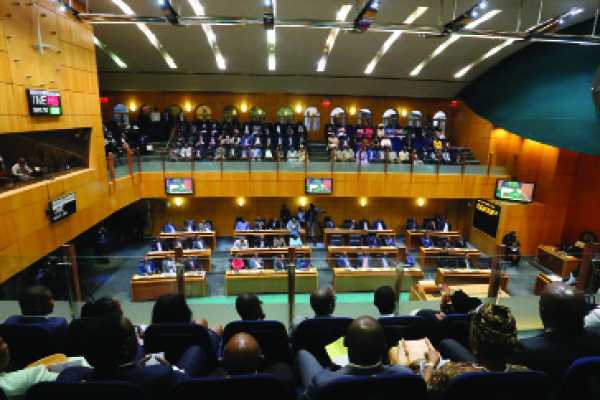Cabinet discusses Climate Change Policy
The Draft Climate Change Policy (2006) has been tabled before Cabinet for discussion, Minister for Presidential Affairs, Governance and Public Administration Nonofo Molefhi has confirmed.
He told a workshop at the University of Botswana recently that government was making strides to seriously tackle climate change by putting in place legislative and adminstrative instruments such as the Climagte Change Policy as well as the Energy Policy. Meantime, Botswana is signatory to United Nations Framework Convention on Climate Change, which was ratified in 1994. The country also ratified the Convention’s legal instruments - Paris Agreement in 2016, and the Kyoto Protocol in 2003.
Botswana has also set up the National Committee on Climate Change and was part of the preparations of the 3rd National Communications (2018). During a recent conference on Earth Hour and Climate Change at Travel Lodge in Gaborone a Department of Meteorological Services official Janet Selato noted that Batswana should employ a timely response to climate change benefits because it affects them too.
“Climate change requires alertness and profound changes in our lives especially as active response to climate change benefits development,” she said. She added that although there is increased awareness on climate change, practically, there is still a lot that needs to be done on the ground to make changes that would help reduce emissions. Among the key aspects that the public could implement in their day-to-day lives to mitigate climate change Selato mentioned responsible use, maintaining and recycling.
She also said energy could be saved by switching off idle consumers, investing in efficient alternative systems and using climate smart farming among others.
As for energy efficiency, she said it was important to create more awareness on energy saving and efficiency and also be informed on building codes (insulation), efficient appliances (including LPG), transport (hardware, planning and fuel-saving driving styles) as well as investing in improved energy supplies, renewable energy (solar) and efficiency in fossil power generation.
Selato noted that the current factors that are accelerating climate change are man-made, explaining that climate change is predominantly a result of consumer lifestyle, growing world population, inefficient resource use and reliance on fossil fuels (coal, petroleum, natural gas).
She added that technically, climate change is caused by emissions of “greenhouse gases” (GHG) into the atmosphere. “Most emissions come from energy production, industry, transport and agriculture.” In terms of electricity generation, which Earth Hour largely focuses on, she noted that the contributory factors included cement and steel production, industrial processes, heating and transport. *Botswana Emissions Distribution






